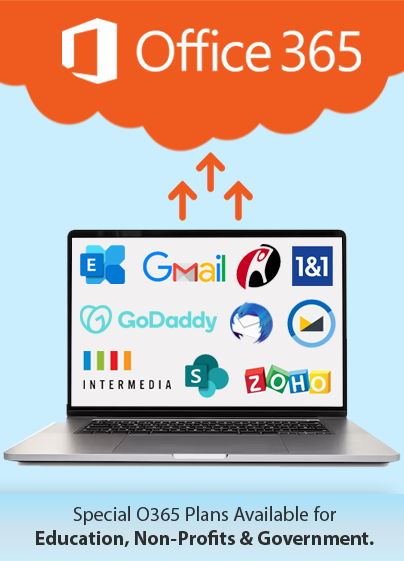What Is Microsoft Cloud for Healthcare Vertical?
Microsoft Cloud for Healthcare is the first vertical cloud solution offered by Microsoft that was made generally available on 28th October 2020. It equips customers and partners with capabilities to improve patient engagement, enhance collaboration, and increase operational efficiency with insights. With Microsoft Cloud for Healthcare, the healthcare industry can benefit from the use of technology for security, compliance, and interoperability of health data to make it faster and easier to provide efficient care. In this article, let us explore what Microsoft Cloud for Healthcare is, and how it can be used to drive digital transformation in healthcare organizations.
What Are the Scenarios for using Microsoft Cloud for Healthcare?
There are three primary scenarios for using Microsoft Cloud for Healthcare.
Enhance Patient Engagement
Healthcare organizations can enhance patient engagement with the help of Patient Outreach tools, Patient Service Center, and the Patient Portal available in Microsoft Cloud for Healthcare.
- The Patient Outreach solution is a campaign management application for organizing and automating marketing and outreach to patients.
- The Patient Service Center solution provides admin and patient functions such as scheduling appointments, viewing care information, communicating with staff, and monitoring and managing interactions with patients.
- The Patient Access Solution can be used for finding information on doctors, chatting with them, scheduling appointments, and viewing clinical data.
Streamline Team Collaboration
Microsoft Cloud for Healthcare can be used to equip health team staff with tools and data for improving the quality and ease of collaboration.
- The Care Management solution can be used by providers to create, personalize, and enable care plans and manage members.
- The Home Health solution can be used by provider personnel to schedule appointments for patients based on multiple factors.
- Clinicians can host high-quality, personalized, and affordable virtual visits for patients who may have mobility issues, compromised immune systems, or are living in remote areas.
- Internal teams can collaborate securely, even when there is clinical and protected health information (PHI).
Provide Better Clinical and Operational Insights
With Microsoft Cloud for Healthcare, organizations can connect data from multiple systems and use it to generate data-driven insights from clinical and operational analytics for transforming health outcomes. This data interoperability also simplifies data governance and enforces compliance, as a single secure data platform is used.
How Are Different Microsoft Cloud Services Used in Microsoft Cloud for Healthcare?
Each of the three healthcare scenarios above requires different capabilities which are enabled by the Microsoft Cloud for Healthcare Add-On. Microsoft Cloud for Healthcare leverages Microsoft Azure, Power Platform, Dynamics 365, and Microsoft 365 with data-models, APIs, workflows, and cross-cloud connectors to deliver integrated cloud solutions provider, payor, pharmaceutical, and life sciences organizations. Here are how capabilities in the different components of Microsoft cloud services are used.
Microsoft Azure
Organizations that are working with protected health information (PHI) data in their healthcare system and need to use intelligent virtual health assistants and health bots can leverage Azure API for FHIR (Fast Healthcare Interoperability Resources) and Microsoft Health Bot. Additionally, Azure Cognitive Services and Azure Machine Learning can be used for analyzing unified datasets, and Azure IoT Hub can ingest data from remote Internet of Things (IoT) and Internet of Medical Things (IoMT) devices.
Dynamics 365 Solutions Center
The capabilities of Dynamics 365 Solutions Center are required for solutions such as Care Management, Home Health, and Patient Outreach. It can also help in syncing clinical data in disparate systems with Azure API for FHIR and navigating to Microsoft 365 admin center for setting up Virtual Visits, and so on.
Microsoft 365 Admin Center
Microsoft 365 has features and products such as Microsoft Teams, Microsoft Bookings, and Microsoft 365 EHR integration that can be configured in the Microsoft 365 admin center when organizations need capabilities such as Virtual Visits and Health Team Collaboration in Microsoft Cloud for Business.
Apps4Rent Can Help with Microsoft Cloud for Healthcare Vertical
With the new Microsoft Cloud for Healthcare offering, Microsoft has once again demonstrated its leadership in empowering healthcare organizations with technology-driven innovation to transform their care ecosystem to deliver convenient, integrated care to consumers, enhance the productivity of providers, and improve outcomes, while lowering overall costs.
As a Tier 1 Microsoft Cloud Solution Provider (CSP), Apps4Rent is a proud Microsoft Partner with Gold Competency in areas such as Cloud Platform and Cloud Productivity that has empowered several healthcare organizations with Microsoft cloud solutions. Contact our cloud architects, available 24/7 via phone, chat, and email for assistance with Microsoft Cloud for Healthcare.
